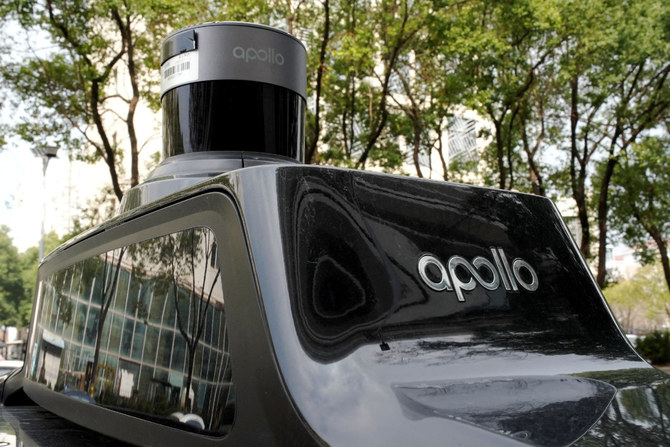WASHINGTON: US President Joe Biden announced an investigation Thursday into the national security risks posed by Chinese tech in cars, warning they could be used to collect sensitive data.
He has ordered the Commerce Department to conduct the probe, focusing on connected vehicles containing technology from “countries of concern” such as China, and to respond to threats.
“China is determined to dominate the future of the auto market, including by using unfair practices,” Biden said in a statement.
“China’s policies could flood our market with its vehicles, posing risks to our national security.”
Washington has been working to lower the US auto sector’s reliance on China, offering tax breaks for American-made electric vehicles and batteries, while trying to build up its domestic production capacity.
The latest investigation concerns vehicles that constantly connect with personal devices, other cars, US infrastructure and their manufacturers — including electric and self-driving cars.
As part of the probe, Commerce will collect information with a 60-day public comment period.
Authorities could eventually impose limits on some transactions but officials did not commit to a timeline.
The White House said connected vehicles collect vast amounts of data on drivers and passengers, log information on US infrastructure through cameras and sensors, and can be piloted or disabled remotely.
“New vulnerabilities” could arise if a foreign government gained access to their systems or data, it added.
“This is yet another acknowledgment by the Biden administration that critical and emerging technologies are set to shape both economic growth and national security,” Thibault Denamiel of the Center for Strategic and International Studies told AFP.
It is noteworthy that the new measure considers “risks associated by technology transfers into the United States,” he added.
Previous moves, such as outbound investment restrictions and semiconductor export controls, focused on transfers from the United States to foreign countries.
“China imposes restrictions on American autos and other foreign autos operating in China,” said Biden.
“Why should connected vehicles from China be allowed to operate in our country without safeguards?” he added.
While there are not many such vehicles containing China-made tech on US roads currently, Commerce Secretary Gina Raimondo stressed the need to “understand the extent of the technology in these cars.”
A senior US official told reporters on condition of anonymity it is important to act before there are large numbers of these vehicles in the country, with China’s automobile export market growing rapidly and making strong inroads including in Europe.
In a January post-earnings conference call, Tesla CEO Elon Musk said Chinese car companies were “the most competitive” globally, expecting that they would likely be successful outside China.
“If there are not trade barriers established, they will pretty much demolish most other car companies in the world,” he said.
The Alliance for American Manufacturing welcomed the investigation, calling for more to be done including higher tariffs and limiting EV tax credits.
In November, 14 members of Congress signed letters to 10 China-related companies involved in the auto sector — including Baidu, Didi Chuxing and AutoX — raising concerns over the handling of data collected when testing autonomous vehicles in the United States.
Besides autos, the White House said this week that Biden was issuing an executive order aimed at limiting the flow of sensitive US personal data abroad.


























